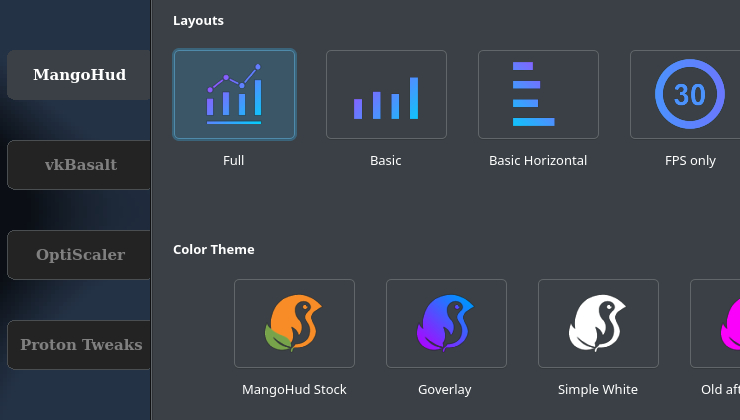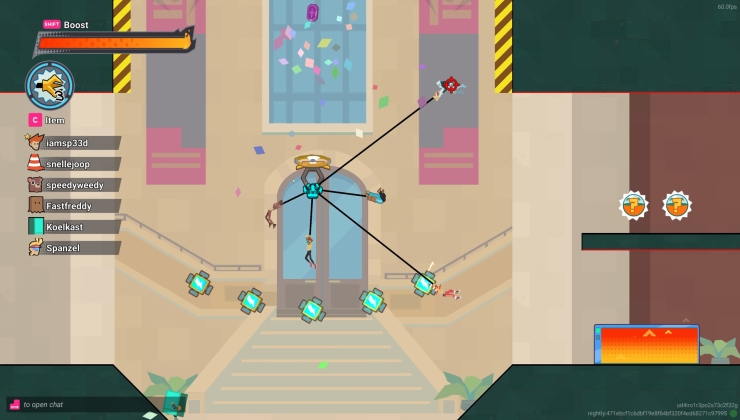openSUSE Leap 16.0 has entered the Release Candidate phase, and for anyone gaming on Steam with openSUSE Leap you'll need some tweaks. openSUSE doesn't actually register in Valve's data for the top Linux distributions used, but still some might be interested to know about this.
In the RC release announcement, there's this bit noted for Steam users:
Steam, Wine, 32-bit support
SUSE Linux Enterprise 16.0 does not support 32-bit binary execution.
Leap users can installgrub2-compat-ia32, which enables it by passingia32_emulation=1to the kernel.
We’ve recently dropped Steam from the Non-OSS repository due to a limited set of 32-bit libraries.
Steam users will want to installselinux-policy-targeted-gaming, which is not installed by default.
We all saw what happened with Fedora when a proposal was put to drop 32-bit didn't we? Sounds like another messy situation. I wonder how much backlash this will end up causing for the openSUSE Leap developers.
To me, all this says is that openSUSE Leap 16.0 is not going to be a good pick for gaming on Linux. And that's fine, not every Linux distribution out there needs to focus on every possible use case, but this will cause friction for people. Then again, if you're using something like openSUSE Leap, you're probably a seasoned Linux user.
Spoiler, click me
Regarding Steam and Flathub:
1) the Steam flathub package is not made by Valve, its a community flatpak
2) even then, the Steam and flathub are fundamentally incompatible on some things, regarding application isolation, as Steam does its own wrappings. Aside that you have to go with that package pants down, so that it doesn't make much difference.
Although in the Steam Deck, you use flathub for installations outside the Steam client, Steam itself is NOT flathub based, but is an regular install in the users' home directory.
Even Valve does not do that.
The whole (generated) changelog is available on https://susedoc.github.io/release-notes/leap-16.0/html/release-notes/index.html, where I took other, relevant information:
- rebuilding the kernel requires a specific compiler designed for building it
- remote login via sshd is disabled in default installation unless a ssh key is provided for
- new users get their own dedicated user group (like RedHat and friends)
- new installations have now SELinux instead of AppArmor.
- firewalld is unusable on interfaces due to an upstream bug
- yast has been removed, only core backend stuff still exists due to dependency to agama.
https://news.opensuse.org/2025/08/04/leap-16-rc/:
If you want to do a migration, it is advised to use a new migration tool (opensuse-migration-tool) that takes also care of migration from pulseaudio to pipewire and the kernel level ia32 emulation parameter.
1) the Steam flathub package is not made by Valve, its a community flatpakThe Steam RPM packages provided for openSUSE aren't made or maintained by Valve, but the openSUSE community. The only packages officially maintained by Valve are the SteamOS version and the Deb package for Ubuntu that you can find on the Steam website.
2) even then, the Steam and flathub are fundamentally incompatible on some things, regarding application isolation, as Steam does its own wrappings. Aside that you have to go with that package pants down, so that it doesn't make much difference.Most of users just download and run games from the desktop interface. Even most of users who play with a controller don't use Big Picture.
whoa, they removed yast? I can remember from my time on tumbleweed, that was a wonderful tool that was widely loved by the community.YaST was great in the 2000's, but today is an outdated software that introduces a lot of redundancies and inconsistencies.
I think that YaST will be replaced with several tools, but by other hand, YaST needs a deep redesign to survive, specially to make it much more modular.
Going through all these changes (yast -> agama/cockpit, dropping 32 Bit, deprecating/dropping BIOS boot, AppArmor -> SELinux, every user gets now its own primary group, favoring wayland, implementation/sponsoring of himmelblau (EntraID integration), etc) they are gearing up for "harmonization" to the Red Hat / Fedora world.
Throw in the more or less hostility of SuSE to its non-commercial user base and community (eg disallowing using the word "SuSE" in the title of the distribution), I have mixed feelings.
There is also the issue, that OpenSUSE 16 only exists as a traditional distribution due to the backlash of the community (and I guess, more due to the negative feedback of their commercial customers), but moving to a fancy immutable distribution model is only postponed. These immutable flavours already exist tho, where the only official is the GNOME flavour and the KDE flavour is a designated community variant.
They also renamed their ALP concept to something else, I already forgot.
For me personally, I have a feeling that the days of Tumbleweed are somewhat counted and one of the few things that hold me back, is software.opensuse.org. I'm looking cautiously into Arch, but Debian style is no go and Fedora ... well SuSE seems so hard to emulate Red Hat now, that is also a nope.
We all saw what happened with Fedora when a proposal was put to drop 32-bit didn't we? Sounds like another messy situation. I wonder how much backlash this will end up causing for the openSUSE Leap developers.Um, leap is based on enterprise, with the latter removing support and the leap developers spending effort to give their users the option of getting it back fairly easily.
No one expects an enterprise product to support gaming and, despite that, leap users can still game. I see nothing here that warrants the comparison.
Last edited by emphy on 5 Aug 2025 at 2:11 pm UTC
The proximity of SuSE to Red Hat is not something new, but a thing that always happened.
If you go full 64 Bit on Steam, you kill off:
- any native 32 Bit Linux games
- any 16 Bit Windows games that still may exist (very old titles)
- all 32 Bit games that have been made in the last 20-25 years
Wine/Proton 32 Bit on 64 Bit emulation is not a magic bullet.
- it has no 16 Bit Support (older 32 Bit setup installer systems used to have at the end of the day some 16 Bit components (especially the Microsoft ones))
- Wine 32 Bit on Wine 64 STILL needs a set of 32 Bit libraries. That is not a solution, but moving the libraries around.
- there are many 32 Bit applications which do not work in that WoW6432 at all.
- performance degration, because of the double translations of system calls.
- all 32 Bit applications have to be fixed again in the WOW6432 environment.
- confusion, what exactly is 32 bit and 64 bit.
Also on the end of the day, even in 32 Bit emulation you need 32 Bit libraries and they don't bugfix themselves, don't upgrade themselves with newer distributions and doing a full host VM you certainly need some 3D GPU virtualization.
If you look at this, keepint 32 Bit around is a way less strain on resources than doing some sort of 32 Bit emulation on 64 Bit and/or full system emulation just for some applications; where you also have the issue of exporting the application window (what is ANOTHER issue on Wayland).
Last edited by lilovent on 5 Aug 2025 at 2:10 pm UTC
I play exclusively on Wayland since 2021 and I didn't have any serious problem. Today I swapped almost all native Linux games to the Windows versions on CachyOS's Proton because it allows me to run the games natively on Wayland.
"I play exclusively on Wayland since 2021 and I didn't have any serious problem. Today I swapped almost all native Linux games to the Windows versions on CachyOS's Proton because it allows me to run the games natively on Wayland."
That is exactly the irony on all, that if you want to preserve your games and make them future-proof, better get the Windows version than the native Linux version.
I did some thinking but, I have the feeling, that business-wise, the only company that has stakes keeping 32 Bit alive, is Valve. Their solution will be - to keep their catalogue playable - is providing a 32 Bit runtime with their Steam client, that encompasses a minimum environment for running these applications, as well as native and as with proton.
On any other non-gaming topics, it also doesn't really make any sense any more sticking to 32 Bit, especially if the end of the 32 Bit Unix epoch is on the horizon, too and more and more cheaper stuff is slowly transitiong to 64 Bit already.











 How to setup OpenMW for modern Morrowind on Linux / SteamOS and Steam Deck
How to setup OpenMW for modern Morrowind on Linux / SteamOS and Steam Deck How to install Hollow Knight: Silksong mods on Linux, SteamOS and Steam Deck
How to install Hollow Knight: Silksong mods on Linux, SteamOS and Steam Deck